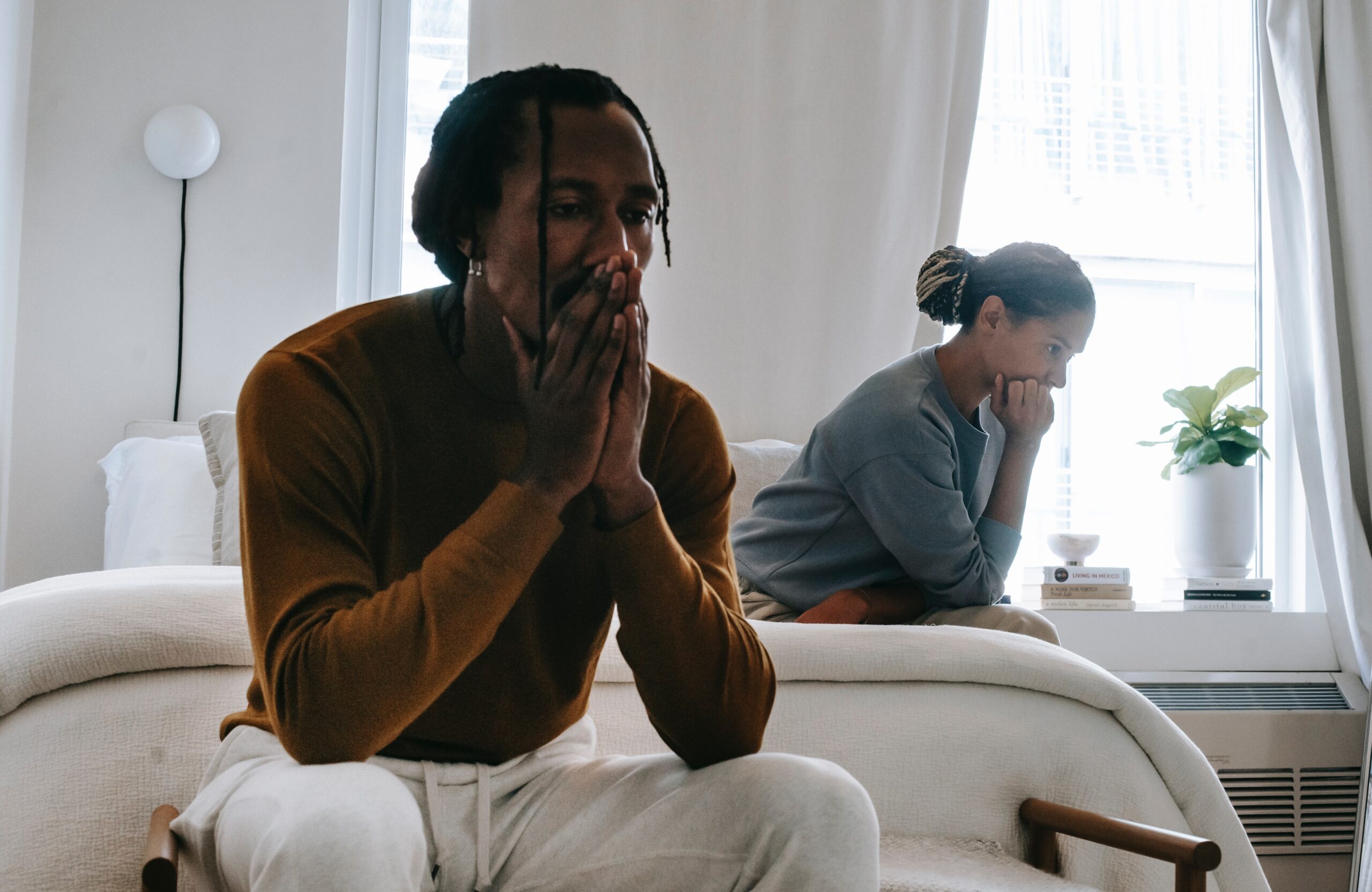Healthy relationships are based on emotional security, they are an intricate bond of trust, emotions, availability, vulnerability, and reassurance. Unfortunately, feelings of doubt, insecurity, worry, panic, and fear can sometimes arise in one partner, leading to relationship anxiety. Relationship anxiety is a common phenomenon affecting individuals across various relationship stages. This does not mean a waning of the relationship or the end of one; it is just an emotional obstacle triggered by mental influences that can be corrected. This article will help you understand the issue and how to cope with relationship anxiety.
What is Relationship Anxiety?
Relationship anxiety is a feeling of insecurity in a relationship, the intensity of which could range from mild to overwhelming. A persistent sense of unease marks emotional angst, worry, doubt, and a constant need for self-reassurance in a relationship. Experiencing relationship anxiety makes you constantly doubt your partner’s loyalty, intentions, and feelings towards you. While people experience a level of uncertainty at some point, excessive relationship anxiety can severely impact emotional well-being, daily life, and the quality of the relationship.
Signs of Relationship Anxiety
- Constant Worry and Doubt: Individuals with relationship anxiety obsessively worry about the relationship envisioning worst-case scenarios even without evidence. There is always a constant worry that your partner is not interested in you. Your thought process then indulges in unfounded fears reading minor actions as signs of concern.
- Need for Reassurance: Those with relationship anxiety feel the constant need to seek validation and confirmation of their partner’s feelings. This arises from a strong desire for reassurance that your partner still loves you.
- Fear of Abandonment: Relationship anxiety induces the fear that your partner might leave you. This fear is often accompanied by the need to avoid rejection, a common characteristic of relationship anxiety.
- Overthinking: Willfully misunderstanding your partner’s behavior, overthinking, overanalyzing interactions, and gestures to find hidden meanings indicate relationship anxiety. Assigning negative meaning to minor changes in your partner’s behavior and detecting changes in how they interact and speak to you often create significant doubt, even when there is none.
- Physical Symptoms: Emotional anxiety can also lead to physical symptoms like palpitations, shortness of breath, nausea, or headaches when worrying about the relationship.
- Relationship Sabotage: Associated with overthinking, you often choose minor changes in behavior as reasons to fight with your partner. You keep testing their boundaries and sometimes push them away to see how they react are all signs of relationship anxiety. You try to sabotage the relationship to be reassured of your partner’s loyalty and commitment.
- Avoidance: Some individuals may try to avoid situations that trigger anxiety, such as avoiding discussions about the future or spending less time with their partner. When displaying avoidance in relationship anxiety, you appear unemotional, unavailable and lack empathy towards your partner. Most people in this case act aloof, yet they long for the affection and closeness of the relationship. Sadly, studies have found that avoidance only alienates a partner even more, and they are less likely to support the person with anxiety. This increases the condition, eventually resulting in separation.
What Causes Relationship Anxiety?
Several factors can cause relationship anxiety, but the state of anxiety varies from individual to individual. Only psychoanalysis involving childhood history, relationship history, and the person’s perception of relationships can help make an accurate assessment. Psychologists believe one of the main reasons is insecurity in childhood, where a caregiver or parent does not meet an individual’s emotional, mental, and physical needs.
Past Trauma: Failed relationships, heartbreak, betrayal, and toxic relationships can contribute to relationship anxiety. Due to such experiences, an individual might find it hard may struggle to trust and open again.
Insecurity and Low Self-Esteem: Studies have found that people with low self-esteem experience high rates of interpersonal conflict and lower rates of relationship satisfaction. The feelings of inadequacy result in a constant fear of not being “good enough” for their partner, triggering relationship anxiety.
Attachment Style: According to research, a person’s attachment style to intimate relationships can cause relationship anxiety. Here again, the type of attachment style depends on how one received or did not receive emotional support and security in childhood. There are four attachment styles:
- Anxious: A negative self-view but a positive view of others.
- Avoidant/Dismissive: Positive self-view but negative view of others
- Disorganized: Displays anxious and avoidant styles depending on mood and circumstances.
- Secure: Comfortable in expressing emotions, secure in the relationship, depends on partners and allows partners to depend on them.
Unrealistic Expectations: Entering a relationship with unrealistic expectations about a partner can lead to disappointment and anxiety.
Lack of Communication: Inadequate communication in a relationship can be misinterpreted and misunderstood, fueling anxiety.
How To Overcome Relationship Anxiety
If you are experiencing relationship anxiety and fear it might impact your relationship, it’s time you do something about it. It would help if you nip something in the bud before it leads to an irreversible situation, and the best way to go about it is to acknowledge it, reach out to a psychotherapist, and follow these ways to cope with relationship anxiety.
Communicate
Communication is the heart of a relationship and is critical to maintaining one. Fighting (without malice, physical injury, competition, and hurtful abuse), argument, and debate are all ok in a relationship. It means the communication lines are open. Talk to your partner about your fears and anxiety to help them understand what you’re dealing with.
Mindfulness
Rather than dwell on the future of your relationship, enjoy its present. Indulging in speculative thought about whether your partner will still love you or be interested in you five years from now robs you of the joy of your relationship in the present. Practicing mindfulness, meditation and deep breathing can help manage anxious thoughts and promote emotional balance.
Self-Awareness
Acknowledge and confront your anxiety, understand its origins and triggers, and question your reasons for it. This is one of the best ways of overcoming relationship anxiety and ensuring your emotions don’t go overboard.
Set Realistic Expectations
Nobody is perfect; a healthy relationship is one in which two people accept each other for the good and the bad. Enjoy the perfections and accept the imperfections. When partners compromise and cooperate to work things out, it always ends in a positive outcome.
Build Self-Esteem
Engage in activities that help you understand your self-worth to remove the stress and anxiety of inadequacy. Focus on personal growth and pursue individual interests or hobbies to reduce dependency on your relationship for stimulation and fulfillment.
Therapy
Therapy is never embarrassing, nor does it mean your relationship is a mess. Considering treatment shows how you are genuinely concerned about your relationship and value it enough to seek help to improve it. Whether it’s individual worries or relationship dynamics, relationship counselling can be instrumental in managing anxiety and improving communication.
Conclusion
Dealing with relationship anxiety can be challenging, but it’s definitely something you can conquer. Acknowledging it and making a commitment to understand its triggers is key to managing or defeating it. By learning how to handle relationship anxiety, you’ll cultivate a healthier and more active relationship. Keep in mind that seeking professional support is a crucial part of this journey.
















